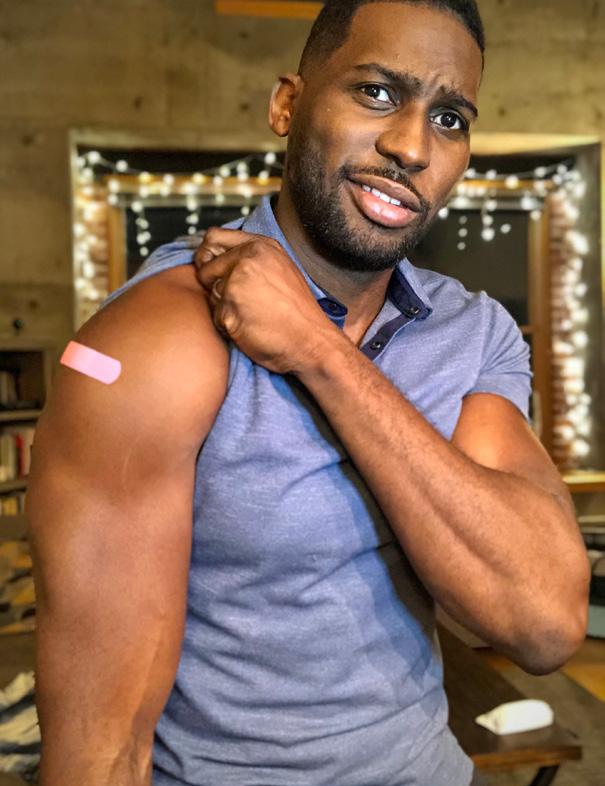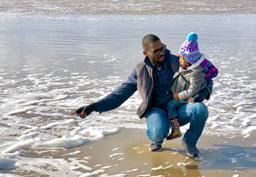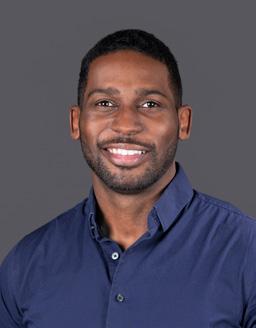
3 minute read
Fostering a Sense of Care

FOSTERING A SENSE OF CARE IN THE FACE OF COVID
Advertisement

When Dr. Antwon Chavis (Iowa State 05) headed to college he didn’t know he would end up working with children and making a difference in their lives. He chose Iowa State University because he received a scholarship and it was close enough to his hometown in Cedar Rapids, Iowa, without being too close.
He joined FarmHouse while majoring in sociology premedical sciences. After graduation, he attended Meharry Medical College, a historically Black College (HBCU) in Nashville, Tenn. Following medical school, his residency led him to Portland, Oregon at the Oregon Health & Sciences University (OHSU). Now he practices as a pediatrician and works for OHSU, serving as an assistant professor for the university.
With his work as a pediatrician, he treats children and has seen how the pandemic has forever changed life for them and their families. In addition to his regular medical evaluations, he often notices outside factors that have an effect on children. The pandemic caused turmoil and challenges for many. In his opinion, added screen time while at home, lack of access to meals at school and an ever-changing environment have all added up. It is Dr. Chavis’ goal to mitigate the stress all these factors have had on families. The loss of a job for a family member, moving to virtual school and lack of social interaction all affect children. Even more so, the effect is increased for foster children.
“Bouncing around causes a lot of trauma on kids,” said Chavis. Based on these factors and more he felt the calling to become a foster parent. “A lot of my drive to foster was because of my job. Seeing kids stuck in the foster system.”
Dr. Chavis joined the foster care system in Oregon, and his first foster child was with him for three years. Working in the medical field in a pandemic as well as being a foster parent took a toll on him as well.
“It was hard for us to navigate because she was in preschool,” said Antwon. “I have a ton of respect for stay-athome parents. I had to do it for two weeks. I was exhausted from parenting because it changes your mindset.”
The passion to foster turned into a love for the child, and he was hopeful he would be able to adopt. However, the child’s biological family was eventually able to properly care for her, and she was reunited with them late in 2020.
W
hile he is not currently fostering, he compared this new chapter of his life to his FarmHouse experience. Reflecting on the lessons he learned while an undergraduate member at Iowa State, “FarmHouse in and of itself was an interesting experience,” said Chavis. “I was one of the few African-Americans at school and in the Greek community.”
His time in FarmHouse included learning leadership skills, time management, dinner etiquette, interacting with others who have different beliefs and being a gentleman. “I thought the best learning I did in FarmHouse was not intentional learning,” he said.

“FarmHouse encourages people to be hard working and sacrifice time, pleasures and comforts,” said Chavis. This has helped him earn his degrees, and be successful in both his career and as a foster parent.
“FarmHouse taught me very much about hard work and helping people, and i can appreciate that a lot. Those are skills that you use more than you think you do. The pandemic has made these skills more valuable. FarmHouse is an organization that teaches you that.”
LEFT: Dr. Chavis shows off his Band-Aid after receiving his COVD-19 Vaccine. BELOW: Dr. Chavis and his foster child play on the beach. RIGHT: Dr. Antwon Chavis (IA 05).








